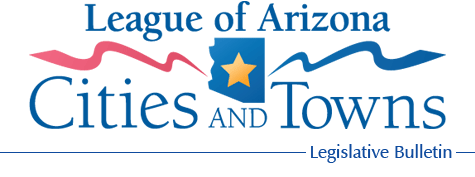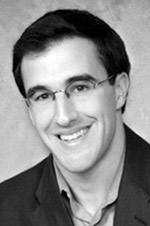
|
|
|
|
Legislator Profile - Representative Matt Heinz If you question the advantages of a hands-on medical presence in the Legislature, then ask Senator Robert Meza or Representative Brenda Barton how they feel about serving alongside the good doctor. They may share a perspective that transcends policy and politics and speaks more to life and death. In 2010, Dr. Heinz observed then-Representative Meza limping off the floor of the House. When Heinz inquired about Meza's leg, the latter dismissed the condition as a mere tennis injury that would heal with time. Heinz assessed the red, puffy, swollen limb and suggested that it could be something serious. He suspected a blood clot and insisted that Meza hasten to his physician for a complete diagnosis. Meza complied, Heinz's suspicion was confirmed, and the clot was treated before it became life-threatening. In 2011, freshman representative Brenda Barton was experiencing abdominal pains and asked her assistant to call for "the doctor." Heinz rushed to her side and beheld the symptoms of a ruptured appendix. Because Barton was unable to drive, Heinz immediately transported her to the emergency room at St. Joseph's Hospital. Within three hours of her arrival, she was in the operating room undergoing an emergency appendectomy. Both incidents reflect an intersection of Heinz's chosen professions: medicine and legislative service. He is especially gratified when he can use the skills and knowledge of one discipline in service of the other. And when he uses his medical knowledge to treat colleagues, he is blind to gender, race or party. "If a political opponent requires chest compressions, I will be on the scene in a heartbeat. If you walk away from someone requiring care, they can die," observes Rep. Heinz, who takes his Hippocratic Oath very seriously. Just as he applies his medical skills in the House of Representatives, Heinz seeks to use his public policy acumen to effect changes in the availability, affordability and delivery of health care services. Among his policy priorities are: the restoration of hospice services for AHCCCS patients; strengthening of the healthcare safety net; and the provision of greater access to robust screening procedures for underserved populations. Because of his healthcare expertise, Heinz speaks with unusual authority about the practical effects of proposed legislation. During legislative debates, he draws upon his salient experience as a practicing physician to articulate the budgetary and operational aspects of healthcare initiatives - of his own and of others. Dr. Heinz has also used his legislative credentials to help individuals with critical medical issues. In one notable case, an Arizona woman afflicted with breast cancer contacted all ninety legislators seeking assistance. Because she had received disability payments, she became ineligible for AHCCCS and had no other way to pay for the expensive care and treatments required to address her illness. She was at the end of her rope. Even though the woman resided in another legislative district, Rep. Heinz personally responded to her plea for help and ultimately became her advocate and the functional equivalent of a case manager. He spoke of her plight to caregivers and decision-makers throughout the healthcare bureaucracy. He even contacted the Administrator of the Centers for Medicare and Medicaid Services in Washington, D.C. on her behalf. He brought resources to bear from the Komen Foundation and secured a donation of medical technology from Genentech. Because of the doctor/representative's efforts, the patient underwent a life-saving double mastectomy. In addition to the enduring gratitude of the woman's family, Heinz received the psychic reward of knowing that he used the advantages of his position to make a tangible, positive difference in someone's life. Rep. Heinz was born and raised in Midland, Michigan, the headquarters of Dow Chemical. It was a quiet, conservative, educated community with a substantial professional population - the type of place where you know your neighbors and don't think about locking your doors when you go out for awhile. His mother (a first-generation American of Lebanese ancestry) and his father (distantly related to the dynasts of Heinz Ketchup) provided young Matthew with a stable home environment and four doting sisters. He enjoyed an upbringing, he says, that prepared him well for life. Upon his graduation from H.H. Dow High School, the brilliant future doctor took his academic talents to Albion College, where he graduated summa cum laude and was awarded membership to the Phi Beta Kappa Society, the oldest and most prestigious academic honors society in the United States. He then entered medical school at Wayne State University School of Medicine in Detroit. When it was time to embark upon a residency in internal medicine, Heinz secured 10-12 interviews across the country. His trip to Tucson to interview at University Medical Center had an inauspicious beginning, as his flight was late, he arrived after a sleepless night, and he had trouble locating the facility. Despite these challenges and an abbreviated stay of only thirteen hours, he found himself quite attracted to the Old Pueblo. "The staff members at UMC were down-to-earth, incredibly personable and nice," he recalls. "Moreover, I was there on December 30. It was 68 degrees and sunny, and I was sweating in my suit." Having endured decades of Michigan winters, he felt this was a place he could love. Later, as the senior resident at the Veterans Administration hospital in Tucson, Heinz gloried in the splendor of his surroundings. "Tucson's VA hospital is one of the best in the country, and it's certainly the most beautiful," Heinz opines. He would frequently summon the hospital's residents to walk along the colonnaded corridors of the former sanitarium and proceed to the roof to relax and watch sensational sunsets together. "I knew that if they would take fifteen minutes away from the chaos to just chill out in this magical spot, then they'd have a much better night." Representative Heinz is a man of inhuman energy. Driven by an urgency to accomplish more, to touch more lives, to do more good, he is in constant motion. Sitting still is, for him, a significant challenge. After three years of practicing medicine in Arizona, Heinz decided to channel some of his excess energy into the development of public policy - as if the life of an emergency room physician weren't challenging and taxing enough. In 2006, at the age of twenty-nine, he ran for the Arizona House of Representatives as a relative unknown. He lost. "I learned from that experience that I don't like losing. I decided it was not something I would do anymore," says Heinz. The following year, then-Representative Linda Lopez decided to vacate her House seat to run for the Senate. Heinz entered the 2008 legislative race full throttle. He ran his own campaign, personally visiting 4,500 homes. For about ten months, he walked neighborhoods before and after his hospital shift and for up to ten hours on his days off. He found that the electorate was more interested in the walking doctor's assessment of its medical problems than in his policy positions. In the end, that worked to his advantage. "People don't forget you when you diagnose their gout," he remarks with a laugh. He emerged from the crowded seven-way Democratic primary as the top vote-getter by far. As a representative, Heinz has focused his efforts on achieving results rather than scoring political points. He is universally regarded as one of the most effective members of the minority party with respect to accomplishing legislative objectives. "I don't scream and hit the table and play political 'bang-em-up,'" he advises. "That won't help me get things done." Rep. Heinz, who received a Friend of Cities and Towns award last summer, is proud of his defense of municipal prerogatives. He notes that he has, "voted for cities and towns right down the line," and continues: "I reject the hostility that the Legislature has directed towards local government. It's misguided. Taking authority and resources away from those who serve people most directly is counter-productive, terribly damaging and wrong-headed." Heinz is especially attuned to the unique nature of Tucson and other communities outside the immediate gravitational pull of Phoenix. He understands that the diversity of Arizona's cities and towns is inconsistent with a one-size-fits-all approach to municipal governance. Heinz does not know what his political future holds, although he is clearly interested in maintaining the happy marriage of healthcare and policy that has become his professional life. It is somewhat reassuring that, wherever he lands, there will continue to be a doctor in the House. Or the Senate. Or the Congress. Or .... ? |
|
|
Legislative Bulletin is published by the League of Arizona Cities and Towns. Forward your comments or suggestions to league@azleague.org. |





